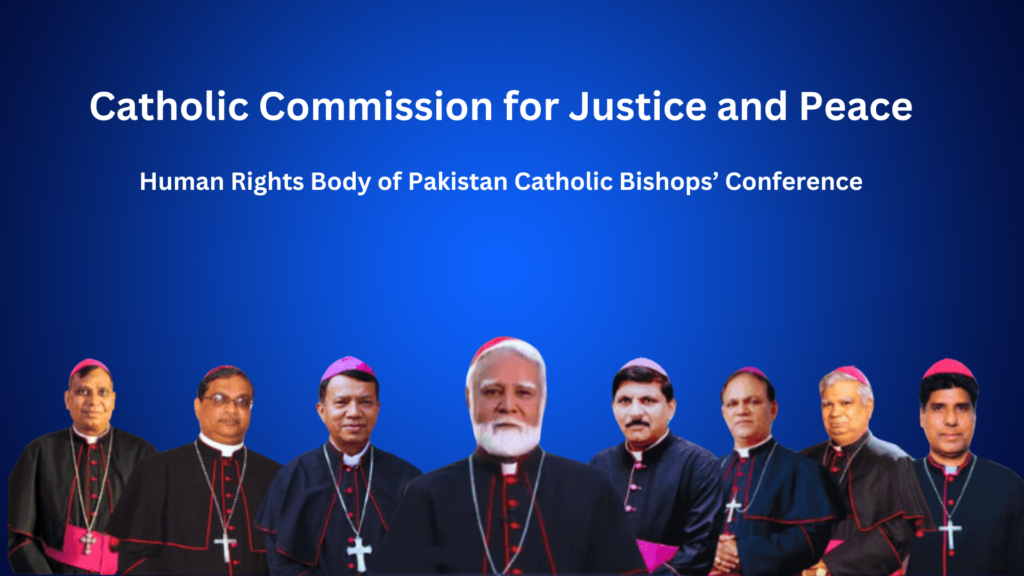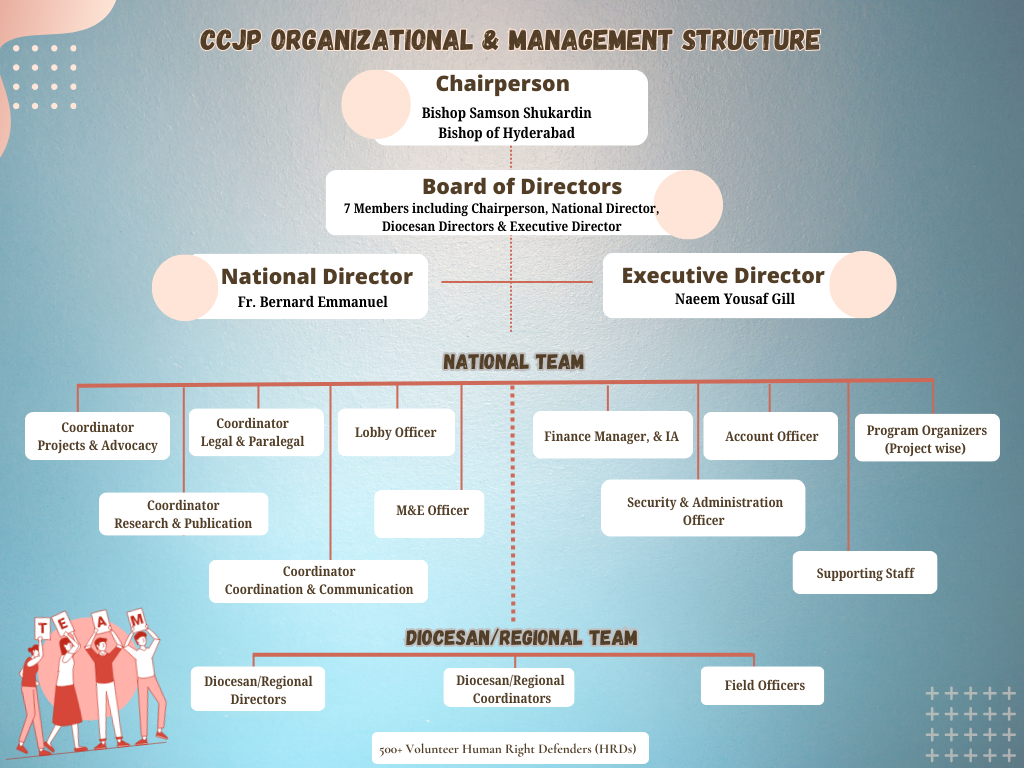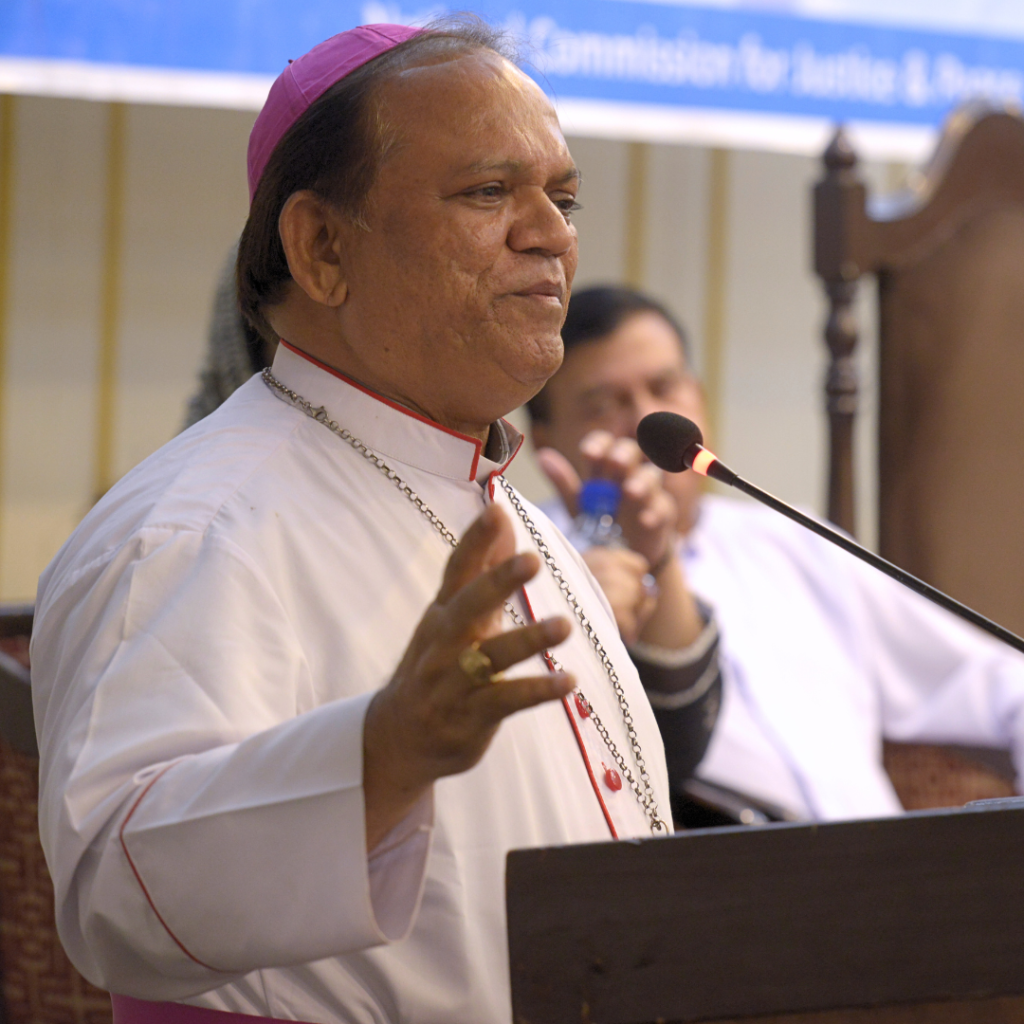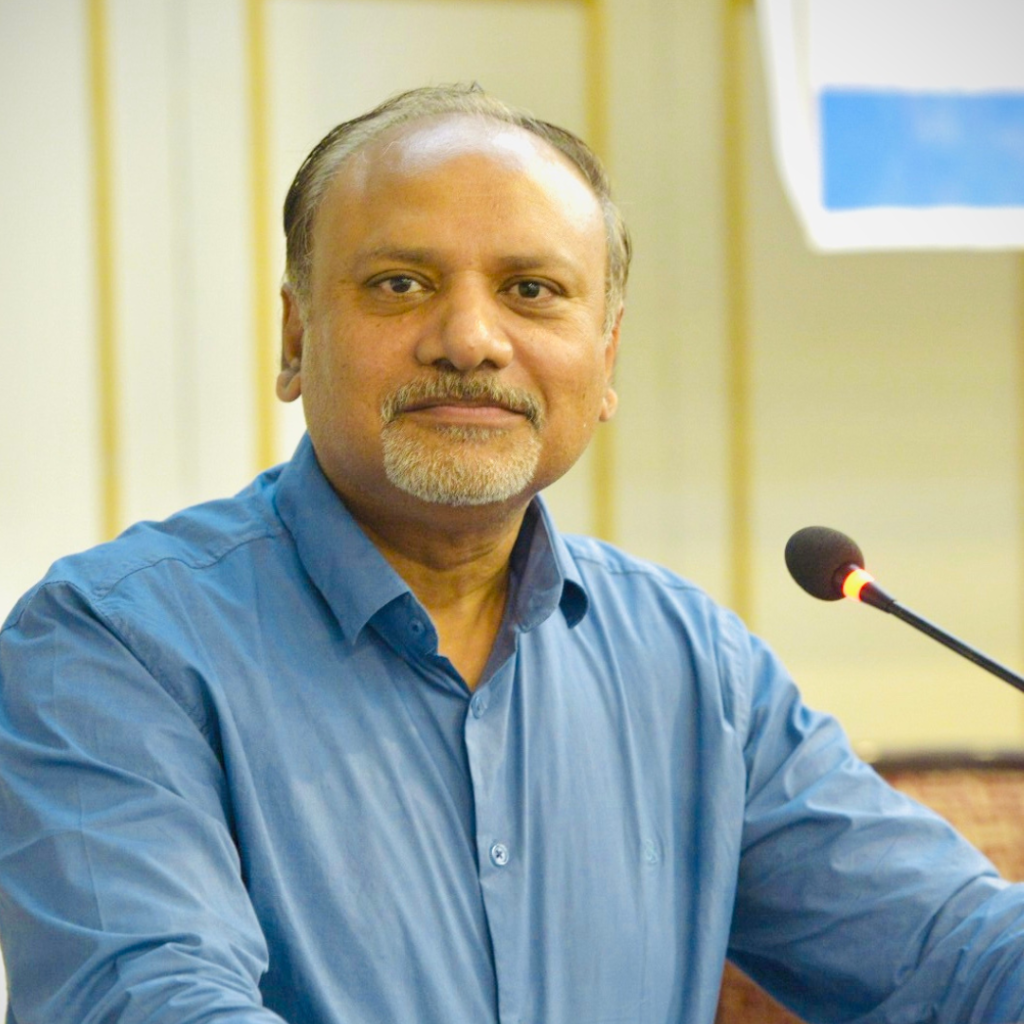
INTRODUCTION
The Catholic (National) Commission for Justice and Peace (CCJP) is a Tji-Hak-Soon (Tulip) Foundation and Pax Christi Peace Awarded human rights body, established by the Pakistan Catholic Bishops Conference in 1985 advocating rights of the marginalized groups, especially of religious minorities, women and children in Pakistan that involves interventions regarding awareness, opinion building about law and policy reforms in seven regional/diocesan i.e., Rawalpindi, Gujranwala, Faisalabad, Multan, Hyderabad, Karachi and Quetta and a National office at Lahore. CCJP also extent its work of lobby and advocacy at the provincial, national and international level with government officials, parliamentarians, religious leaders, diplomats, permanent missions and international agencies, bodies and community through liaison building among CSOs and training a cadre of 500+ human rights activists (volunteers) belonging to different religions, cultures and administrative regions of Pakistan.
ORGANIZATONAL STRUCTURE
CCJP carries out its activities through seven Diocesan/regional offices in Pakistan which are in Rawalpindi, Gujranwala, Faisalabad, Multan, Hyderabad, Karachi and Quetta and a National office at Lahore. For its activities in the field NCJP relies on a cadre of 500+ human rights activists (volunteers) belonging to different religions, cultures and administrative regions of Pakistan.



THEMATIC AREAS
Freedom of religion or belief strengthening rights of the religious minorities Pakistan
- Religious freedom in Pakistan has largely become a theoretical concept, isolated from daily practice. Despite constitutional guarantees, the reality for religious minorities is often one of exclusion and discrimination.
The Pakistani constitution ostensibly upholds religious freedom and conscience but simultaneously undermines these principles through various articles. For instance, Articles 2(a, b), 41, 106, and 260 categorize citizens and their entitlements based on religion, thereby creating a hierarchical societal structure that favors Muslim citizens. This preferential treatment has fostered a perilous mindset among the majority, leading to property seizures, social sanctions against minority faith expressions, and a blockade against societal and individual refinement.
Discriminatory laws and practices
- Since the Objective Resolution of 1949, Pakistan’s constitutional and legal frameworks have leaned towards a theocratic bias, disregarding international human rights norms concerning non-discrimination. This oversight has entrenched a disparity among citizens, evident in various spheres of life, including employment where religious minorities are often barred from even minor government positions. Officially endorsed discrimination is not only legal but has become a norm, contributing to widespread religious intolerance.
Unbiased education policies practices and implementation
- The bias extends into the educational system where the curriculum largely reflects majoritarian views, significantly reducing the representation of minorities in educational content. This skewed portrayal leads to prejudice, injures minority students’ sentiments, fosters a sense of injustice, and alienates them. Despite decades of appeals from minorities and the Catholic Commission for Justice and Peace (CCJP) to remove hate content against minorities from textbooks, successive governments have shown little concern for these grievances.

Fr. Bernard Emmanuel
National Director

Bishop Samson Shukardin
Chairman

Mr. Naeem Yousaf Gill
Executive Director

